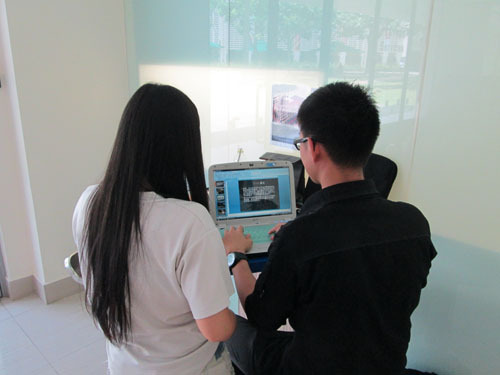
Cingapura é reconhecido mundialmente como um sistema de alto desempenho educação.
Como o Dr.. Pak Tee Ng relatou para nós quase um ano atrás, Singapore has been implementing technology in its education system since 1997. A three step “Plano diretor” initiative was kicked off beginning with Masterplan One (1997-2002), the goal being to allow students computer usage for 30 percent of their curriculum time in fully networked schools with a computer to pupil ratio of 1:2. Masterplan Two of Singapore Information and Communications Technology (TIC) was aimed at motivating teachers to use ICT effectively in teaching and learning. Masterplan Three (2009-2014), currently in progress, is built on the first two Masterplans but aims to be more transformative, the goal being to equip students with the critical competencies to succeed in a knowledge economy. How are they doing in K through 12 e além? Perguntei Dr. Pak Tee Ng to give us an update.
Dr. Pak Tee Ng é Dean Associado, Aprendizagem liderança, Gabinete de Pós-Graduação e Aprendizagem Profissional, e Chefe e Professor Associado, Política e Estudos de Liderança Grupo Acadêmico, no Instituto Nacional de Educação, Nanyang Technological University, República de Singapura.
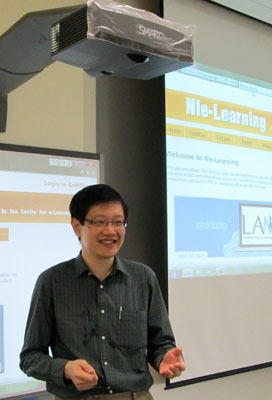
Como a tecnologia impactou o sistema de ensino Cingapura? O que você vê como os prós e contras de um ponto de vista da aprendizagem?
Hoje em dia, todo o campus conectividade com a Internet sem fio, computadores em sala de aula com equipamento de projeção, professores e alunos com os seus próprios laptops ou outros dispositivos de TIC móvel são comuns nas escolas de Cingapura. A tecnologia é bastante difundida, mas não é o equipamento que estamos interessados em. Do ponto de vista de aprendizagem, we are more interested in how technology can transform learning and bring it to a higher level for our students. Singapore believes in the use of technology in education. But we are cautious that we do not use technology for the sake of using it. Inappropriately used, technology can be a distraction rather than a help. We are encouraging our teachers to explore more in this area.
How is the role of the Singapore teacher changing in the digital age?
In the digital age, there will be a lot of information that is available in the virtual medium. Teachers have to help students make sense of this large volume of information and to differentiate good information from potential misinformation. Teachers have to facilitate student discourse in the e-discussion forums and lead students in creating actual usable knowledge. These learning activities require a high level of facilitative and synthesizing skills. No entanto, that does not mean that teachers do not conduct face-to-face teaching. Contact hours become more valuable and should be focused on higher order thinking and learning, instead of information transmission.
Although the use of ICT is not exactly new in education, there is still a lot of room for development in this area. Portanto, teachers are encouraged to be change agents of educational processes, so that new technologies may be harnessed for educational purposes. Senior teachers also play the role of mentors to beginning teachers in the effective use of ICT in their respective disciplines and to champion appropriate change.
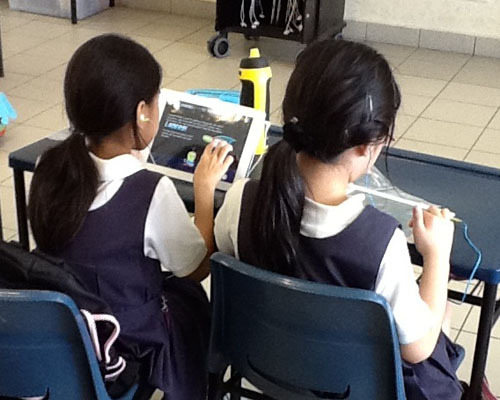
Estados inteiros em os EUA adotaram livros digitais. Bibliotecas universitárias estão se tornando repositórios de conteúdo digital. Many would say textbooks have already gone digital and indeed, the next generation of digital content is not far behind. What digital learning tools have been implemented in Singapore and what do educators see as the pros and cons of these?
Digital learning tools are getting more popular and pervasive in Singapore. University libraries are indeed going digital. De fato, they are more accurately described as a ‘space’ than a ‘place’. Most academics and research students nowadays will download an e-article than read a hard-copy journal.
Many desktops have been phased out. Laptops, tablets, iPads and Androids are quite common among young people. Various schools have also implemented Learning Management Systems (LMS’s) such as Blackboard, WebCT and Moodle. Mas, como eu disse, não estamos tão interessados na ferramenta em si como a pedagogia que pode permitir. A tecnologia não deve ser usado apenas para apoiar os métodos tradicionais de ensino em termos de produtividade. Em vez, o desafio é aprender como a tecnologia pode ser usada de forma centrada no aluno para melhorar a aprendizagem do aluno, ou mesmo a gerar aprendizagem que não era possível no passado, sem a tecnologia. In the digital age, informação torna-se mais facilmente disponíveis e isso é bom para a educação. No entanto, having information easily available is not the same as having better learning. We are more interested in raising the standards of learning, rather than just having more information.
How has technology impacted curriculum design in Singapore?
Em geral, curriculum should be designed to achieve challenge, enjoyment, breadth and depth, personalization and choice, coherence and relevance. It is quite apparent that technology has the power to help in each of these areas. One of the advantages of ICT is that it can expand access to education. Through ICT, students can access online course materials anytime and anywhere, learning at their own pace. E-discussion forums allow many students to discuss learning content at the same time. Video clips, audio sounds and graphical presentation bring content to life.
Em Cingapura, one of the main impacts of technology is a shift in the mindset of educators to discover how curriculum and the teaching environment can become more learner-centered through the enabling of ICT. Instead of always relying on the traditional curriculum, we now have more experiments with modular approaches, flipped classrooms and learning content beyond the shores of Singapore. No entanto, while encouraging experimentation, we continue to take a balanced and judicious approach in this area, paying attention not just to the tools but also to capacity building among educators for change. The use of technology and changes in curriculum design need to move in tandem.
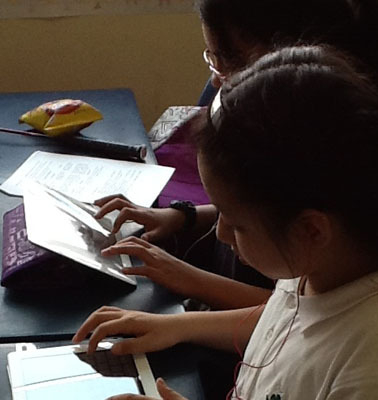
The latest Pew research once again indicates that the use of tablets, telefones celulares, Internet sources and social media platforms such as Facebook and Twitter continues to infiltrate classrooms in the US rapidly. Are you seeing the same trend in Singapore classrooms? Até que ponto o uso dessas ferramentas faz parte do seu currículo? Existe uma idade abaixo da qual você acredita que essas ferramentas não são apropriadas nas salas de aula?
Em Cingapura, the use of tablets, telefones celulares, Fontes da internet e plataformas de mídia social como Facebook e Twitter é comum entre os jovens. It is a lifestyle change, ao invés de uma mudança educação. Em geral, as escolas são livres para experimentar com ferramentas de mídia social como ferramentas de aprendizagem. Nossa preocupação é o uso responsável de tais ferramentas entre os jovens. Estamos educando os jovens em relação às questões de bem-estar e cyber-cyber-bullying.
Existe uma idade abaixo da qual as ferramentas de TIC não são apropriados nas salas de aula? Esta é uma pergunta difícil de responder com autoridade. Some researchers do not recommend computer use for children under 3 anos. There may be a problem of confusing “real” com “virtual” when children are too young. Em Cingapura, we are trying out some ICT tools, such as iPads, with preschoolers. But again, we are cautious and balanced in our approach. Preschoolers are at a stage of learning to master skills such as speaking and making friends. They should interact more with human beings and natural objects. Assim, we start in a small way in preschool, and incrementally expose children to such tools at the higher levels, while educating them about cyber-wellness.
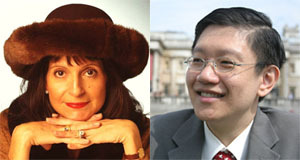
Photos courtesy of Pak Tee Ng and National Institute of Education, Nanyang Technological University, República de Singapura.
Para mais artigos na Got Tecnologia? série: A Pesquisa Global para a Educação: Got Tecnologia? – Finlândia, A Pesquisa Global para a Educação: Got Tecnologia? – Canadá, A Pesquisa Global para a Educação: Got Tecnologia? – Austrália, A Pesquisa Global para a Educação: Got Tecnologia? – Estados Unidos, A Pesquisa Global para a Educação: Got Tecnologia? Escolas IB em um mundo virtual, A Pesquisa Global para a Educação: Got Tecnologia? – Argentina
Na busca Global para a Educação, se juntar a mim e líderes de renome mundial, incluindo Sir Michael Barber (Reino Unido), Dr. Michael Bloco (EUA), Dr. Leon Botstein (EUA), Professor Clay Christensen (EUA), Dr. Linda, Darling-Hammond (EUA), Dr. Madhav Chavan (Índia), Professor Michael Fullan (Canadá), Professor Howard Gardner (EUA), Professor Andy Hargreaves (EUA), Professor Yvonne Hellman (Holanda), Professor Kristin Helstad (Noruega), Jean Hendrickson (EUA), Professor Rose Hipkins (Nova Zelândia), Professor Cornelia Hoogland (Canadá), Honrosa Jeff Johnson (Canadá), Senhora. Chantal Kaufmann (Bélgica), Dr. Eija Kauppinen (Finlândia), Secretário de Estado Tapio Kosunen (Finlândia), Professor Dominique Lafontaine (Bélgica), Professor Hugh Lauder (Reino Unido), Professor Ben Levin (Canadá), Senhor Ken Macdonald (Reino Unido), Professor Barry McGaw (Austrália), Shiv Nadar (Índia), Professor R. Natarajan (Índia), Dr. PAK NG (Cingapura), Dr. Denise Papa (US), Sridhar Rajagopalan (Índia), Dr. Diane Ravitch (EUA), Richard Wilson Riley (EUA), Sir Ken Robinson (Reino Unido), Professor Pasi Sahlberg (Finlândia), Professor Manabu Sato (Japão), Andreas Schleicher (PISA, OCDE), Dr. Anthony Seldon (Reino Unido), Dr. David Shaffer (EUA), Dr. Kirsten Immersive Are (Noruega), Chanceler Stephen Spahn (EUA), Yves Theze (Lycée Français EUA), Professor Charles Ungerleider (Canadá), Professor Tony Wagner (EUA), Sir David Watson (Reino Unido), Professor Dylan Wiliam (Reino Unido), Dr. Mark Wormald (Reino Unido), Professor Theo Wubbels (Holanda), Professor Michael Young (Reino Unido), e Professor Minxuan Zhang (China) como eles exploram as grandes questões da educação imagem que todas as nações enfrentam hoje.
A Pesquisa Global para Educação Comunitária Página
C. M. Rubin é o autor de duas séries on-line lido pelo qual ela recebeu uma 2011 Upton Sinclair prêmio, “A Pesquisa Global para a Educação” e “Como vamos Leia?” Ela também é autora de três livros mais vendidos, Incluindo The Real Alice no País das Maravilhas.
Siga C. M. Rubin no Twitter: www.twitter.com/@cmrubinworld


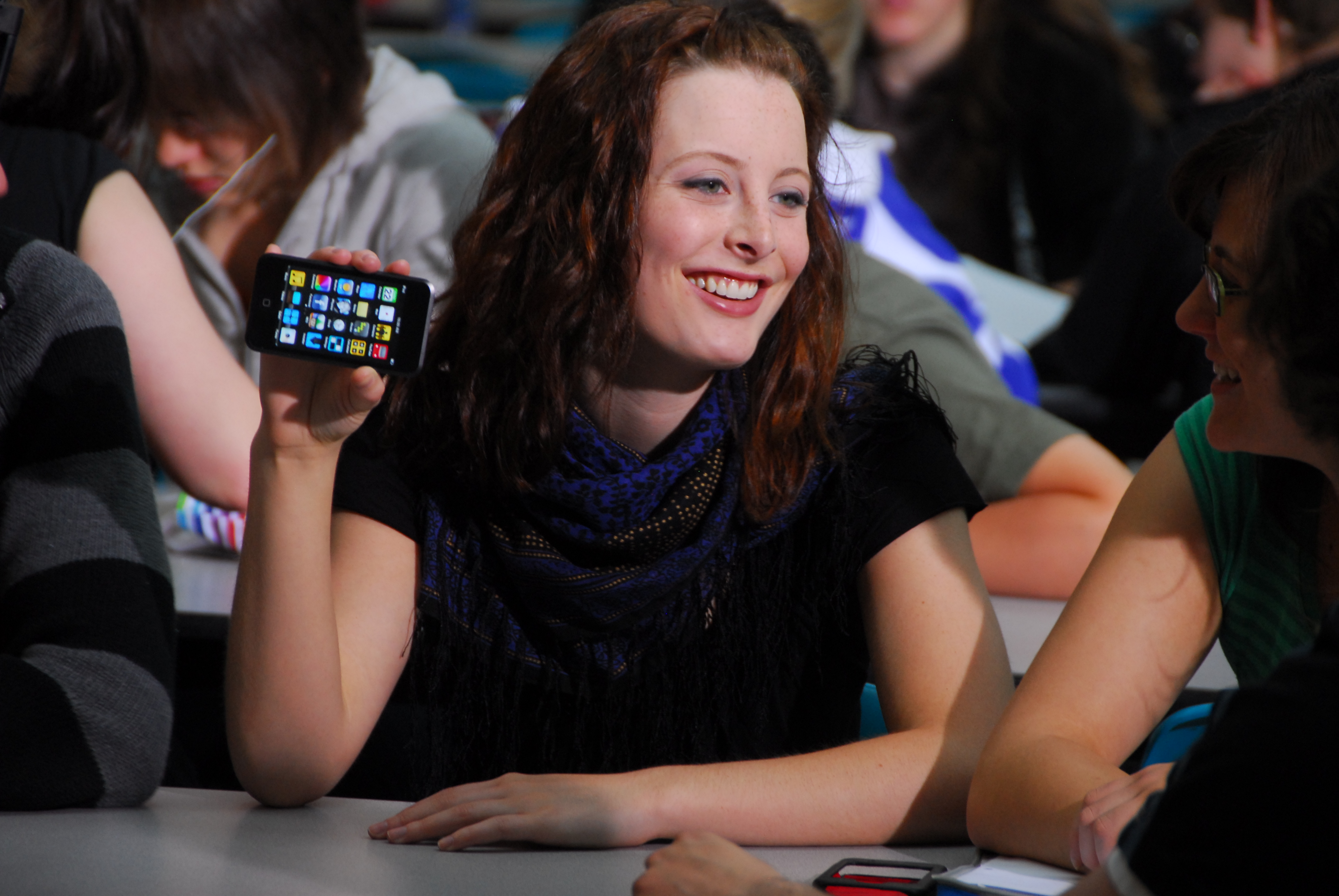
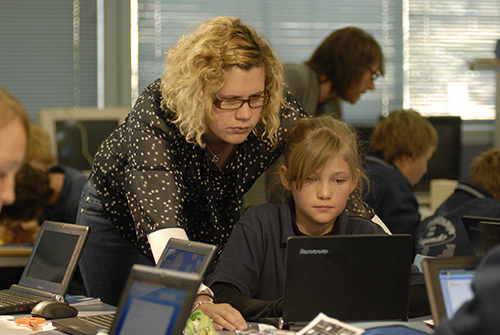
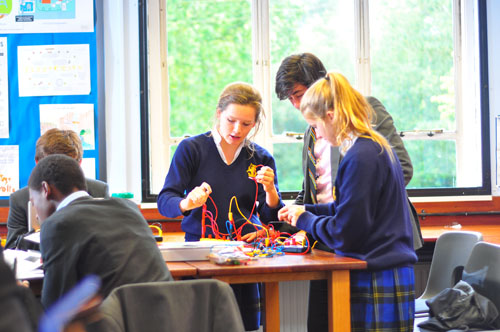
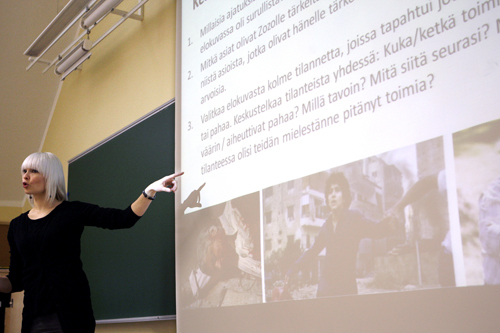
Comentários Recentes